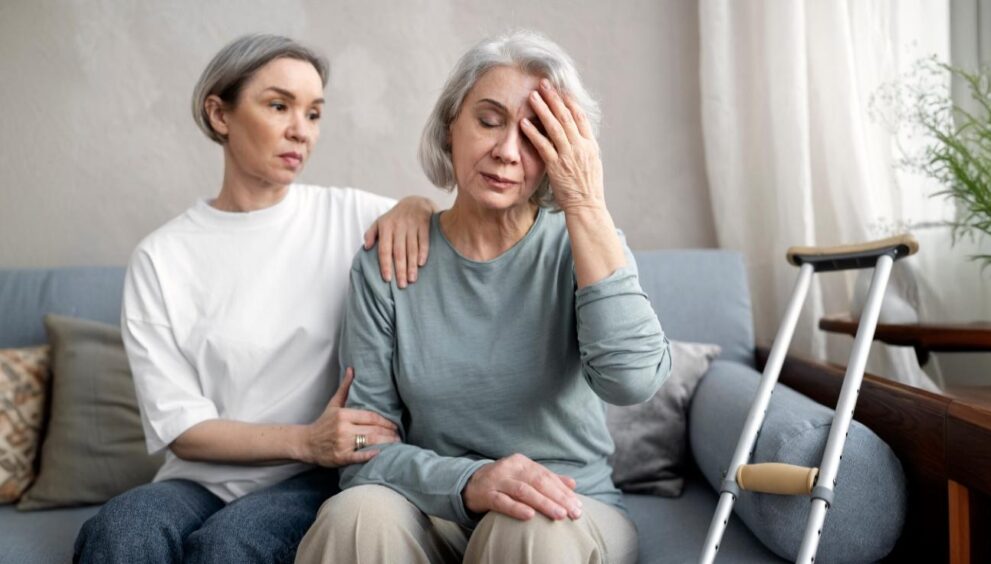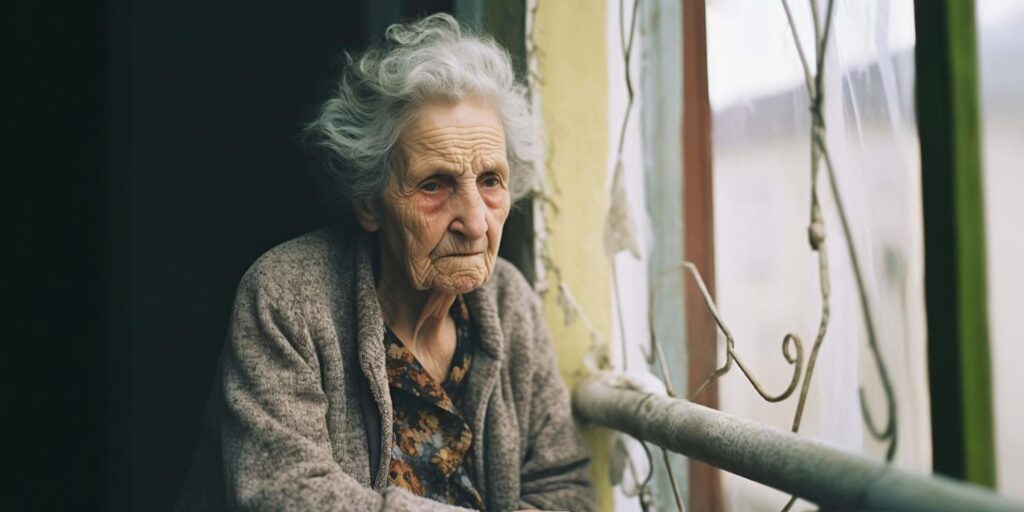Excessive sleepiness in older women linked to higher dementia risk
Sleepiness and dementia have a reciprocal relationship, though the exact link is unclear
Author

Sneha Richhariya is a reporter based in New Delhi, India. Her work focuses on health, environment and gender. She is the recipient of UN Laadli Media Award 2024 and Human Rights and Religious Freedom (HRRF) Award 2023. She has received fellowships from Internews Earth Journalism Network, Health Systems Transformation Platform (HSTP), Deutsche Welle Hindi, Report for the World and National Coalition for Natural Farming (NCNF). She has written for organisations like Deutsche Welle, Scroll, Mongabay India, South China Morning Post (SCMP), Newslaundry, Himal Southasian, The Third Pole, The Quint, IndiaSpend and Article 14.
View all posts
Author

Sneha Richhariya is a reporter based in New Delhi, India. Her work focuses on health, environment and gender. She is the recipient of UN Laadli Media Award 2024 and Human Rights and Religious Freedom (HRRF) Award 2023. She has received fellowships from Internews Earth Journalism Network, Health Systems Transformation Platform (HSTP), Deutsche Welle Hindi, Report for the World and National Coalition for Natural Farming (NCNF). She has written for organisations like Deutsche Welle, Scroll, Mongabay India, South China Morning Post (SCMP), Newslaundry, Himal Southasian, The Third Pole, The Quint, IndiaSpend and Article 14.
View all posts
- admin / 3 months

- 0
- 3 min read

Author

Sneha Richhariya is a reporter based in New Delhi, India. Her work focuses on health, environment and gender. She is the recipient of UN Laadli Media Award 2024 and Human Rights and Religious Freedom (HRRF) Award 2023. She has received fellowships from Internews Earth Journalism Network, Health Systems Transformation Platform (HSTP), Deutsche Welle Hindi, Report for the World and National Coalition for Natural Farming (NCNF). She has written for organisations like Deutsche Welle, Scroll, Mongabay India, South China Morning Post (SCMP), Newslaundry, Himal Southasian, The Third Pole, The Quint, IndiaSpend and Article 14.
View all posts
Excessive sleepiness is linked to an increased chance of developing dementia, a study by the University of California has found.
The study, published in the journal Neurology, involved monitoring of sleep-wake cycles of 733 women over five years and the changes in their health. None of them initially had dementia or cognitive problems, and their average age was 82.5 years. Each woman’s sleep and wake times were recorded over the course of a day, using an actigraph, a wrist gadget.
To ensure reliable data, they were required to visit the clinic, wear the device, and keep a sleep diary. The researchers examined variations in daytime naps and nocturnal sleep throughout the period. They identified three major sleep groups: 156 women (21%) experienced significant increases in both day and night sleep; 256 women (35%) had worst nighttime sleep and more naps with disturbed rhythms; and 321 women (44%) had steady or somewhat improved sleep.
The study found a reciprocal association between dementia and sleepiness: while sleep disruptions may be an early indicator of neurodegenerative changes, dementia-related neurological alterations may also interfere with sleep. However, the study authors clarify that the exact direction of the relationship cannot be determined based on the current study.

Sleepiness and Dementia Risk
Out of the sample, 93 women (13%) were found to have developed dementia, and 164 women (22%) Mild Cognitive Impairment. Compared to women who slept steadily, those who became more drowsy over the course of five years had a roughly twofold increased risk of dementia. However, because the study was purely observational, it was unable to identify whether excessive sleep is a cause of dementia or an early indicator of the condition.
Dementia, a global problem
Dementia is becoming a growing concern around the globe with around 57 million people diagnosed with the condition in 2021, as per World Health Organization (WHO) estimates. More than 60% of the affected population lives in low- and middle-income countries. Alzheimer’s Disease International projects the number of dementia patients at around 139 million by 2050.
Typically, dementia is associated with impairment of memory, reasoning, and problem solving. Rather than a single disease, it is a syndrome that stems from multiple conditions, including neurodegenerative diseases like Alzheimer’s, Parkinson’s, Lewy body, and frontotemporal dementia. Moreover, dementia could stem from vascular problems that weaken blood supply to the brain.
Other factors are infections such as HIV-associated dementia and Creutzfeldt-Jakob disease; nutritional deficits like low vitamin B12; disorders of the thyroid gland; chronic alcohol consumption; exposure to toxic metals; head trauma; some drugs; and brain disorders.
Too much or too little sleepiness: what causes more dementia risk?
Past studies based on participant-reported sleep durations have shown that disturbed sleep patterns may increase dementia risk. But it is not clear whether too much or too little sleep has a greater impact. A study published in Alzheimer’s & Dementia, the official journal of the Alzheimer’s Association, a leading organization in dementia research and advocacy, notes that high or low sleep duration contributes to the risk of cognitive impairment and dementia.
Some studies show that short sleep duration in middle age was associated with higher dementia risk, whereas others indicate that more than 9 hours nightly sleep is associated with neurodegeneration and dementia.
Also read: FACT CHECK: Does sugar cause ADHD, dementia, glaucoma, aging, insomnia, or diabetes? – First Check
(Do you have a health-related claim that you would like us to fact-check? Send it to us, and we will fact-check it for you! You can send it on WhatsApp at +91-9311223141, mail us at hello@firstcheck.in, or click here to submit it online)
Author

Sneha Richhariya is a reporter based in New Delhi, India. Her work focuses on health, environment and gender. She is the recipient of UN Laadli Media Award 2024 and Human Rights and Religious Freedom (HRRF) Award 2023. She has received fellowships from Internews Earth Journalism Network, Health Systems Transformation Platform (HSTP), Deutsche Welle Hindi, Report for the World and National Coalition for Natural Farming (NCNF). She has written for organisations like Deutsche Welle, Scroll, Mongabay India, South China Morning Post (SCMP), Newslaundry, Himal Southasian, The Third Pole, The Quint, IndiaSpend and Article 14.
View all posts










